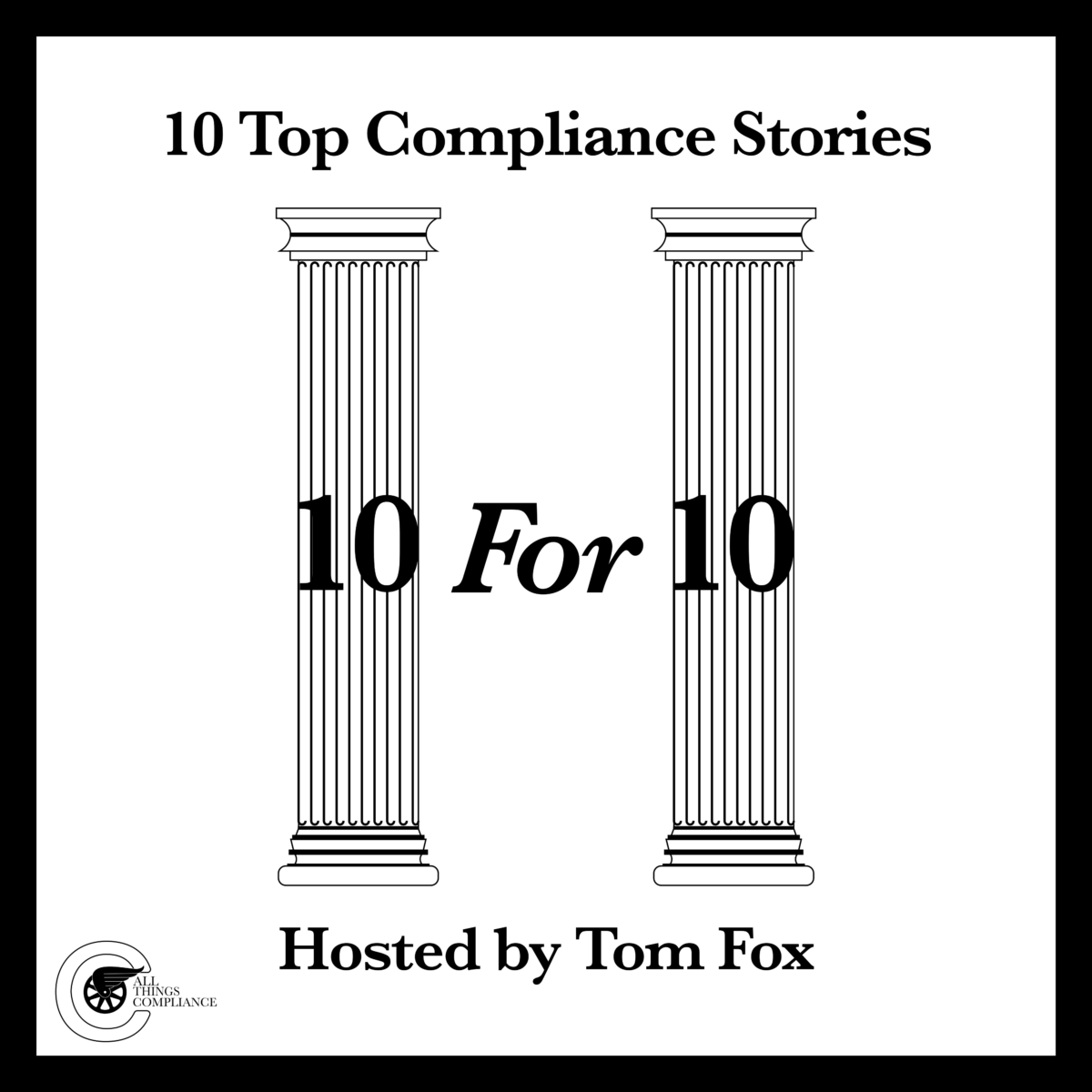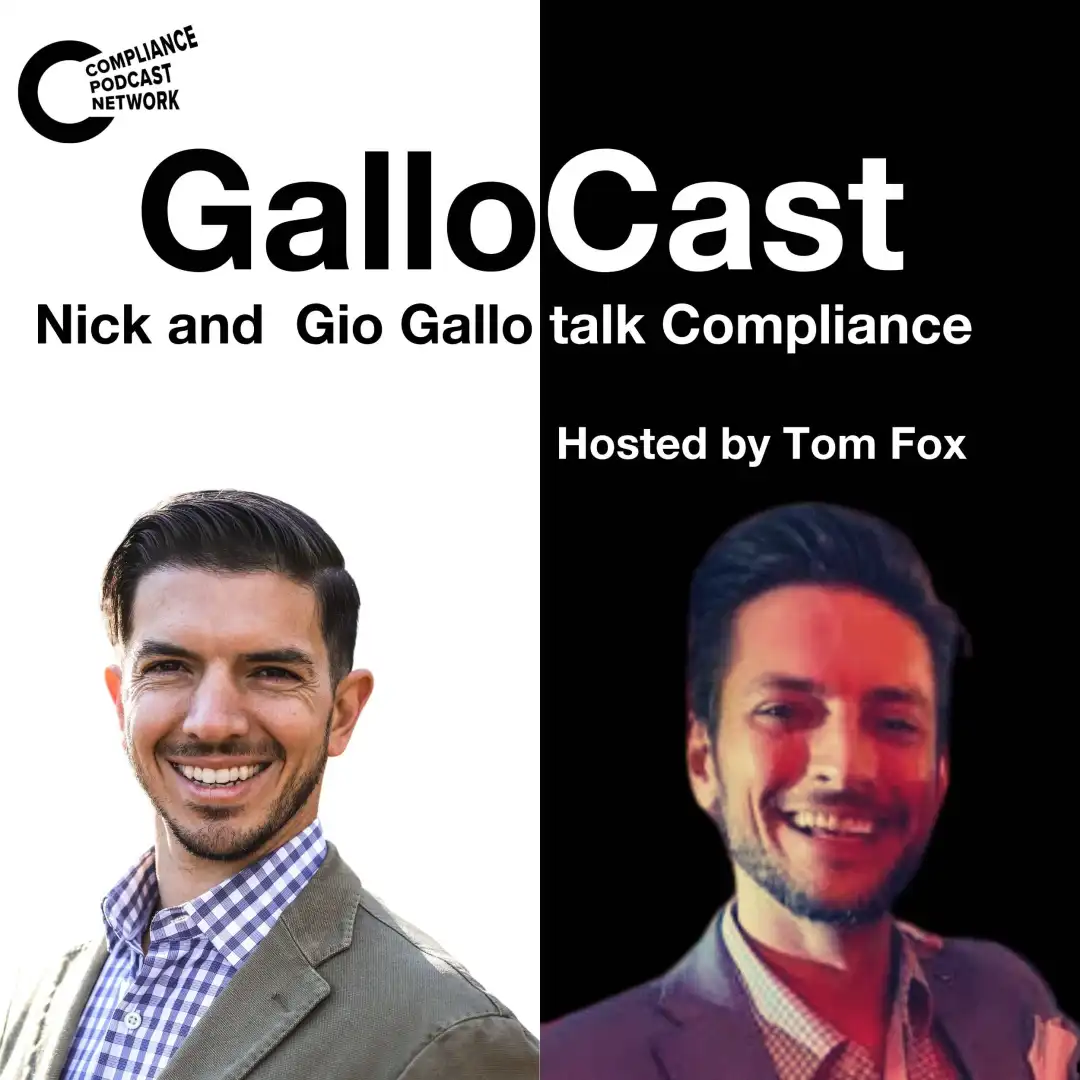Last month, I wrote a blog post on the tone at the top, exemplified in Star Trek’s Original Series episode, Devil in the Dark. Based on the response, some passionate Star Trek fans are out there. I decided to write a series of blog posts exploring Star Trek: The Original Series episodes as guides to the Hallmarks of an Effective Compliance program set out in the FCPA Resources Guide, 2nd edition. Today, I will continue my two-week series by looking at the following Hallmarks of an Effective Compliance Program laid out by the Department of Justice (DOJ) and Securities and Exchange Commission (SEC) in the FCPA Resources Guide, 2nd edition. Today, we look at internal reporting and investigative lessons from The Conscience of the King.
The Conscience of the King centers around Captain Kirk’s investigation into the identity of Anton Karidian, the leader of a traveling theater troupe. Kirk suspects that Karidian is Kodos the Executioner, a tyrant responsible for the massacre on Tarsus IV, where Kirk is one of the few survivors. As the episode unfolds, Kirk must gather evidence to confirm his suspicions while navigating the moral complexities of justice and revenge.
Lesson 1. The Importance of Confidential Reporting
Confidential reporting mechanisms are essential for identifying and addressing potential compliance violations. You should develop a comprehensive, confidential reporting policy that outlines the process for submitting reports, the types of issues that can be reported, protections for whistleblowers, and investigation procedures. These policies must be communicated broadly to all employees and made easily accessible.
You should have multiple reporting channels from there, such as a dedicated hotline, an online submission form, an email address, or in-person reporting to a compliance officer. Ensure all channels are communicated and easy for employees to access. Finally, consider using an independent third party to manage the reporting hotline for maximum confidentiality. They allow employees to report concerns without fear of retaliation, fostering a culture of transparency and accountability. Some of the mechanisms include anonymous reporting.
Lesson 2. Conduct Thorough Investigations
Effective investigations are crucial for verifying claims, gathering evidence, and determining appropriate action. Each compliance program should have a formal, standardized investigation process led by trained, impartial investigators. Your investigative protocol should outline evidence collection, interviews, and documentation guidelines. Investigations should be conducted impartially, ensuring that all parties are treated fairly and that conclusions are based on evidence rather than assumptions or biases. You must ensure that investigations are properly documented, with clear accountability for follow-up actions. You should provide regular progress updates to the reporting party while maintaining confidentiality.
Kirk’s evidence gathering illustrates these principles in the episode, as he seeks out individuals who might recognize Karidian as Kodos, such as Dr. Leighton, who was also a survivor of the Tarsus IV massacre. He balances suspicion with the need for concrete evidence before taking action. Kirk engages in human and forensic-based investigative tools when he devises a plan to observe Karidian’s reaction to hearing his voice from historical records of Kodos’s speeches, showcasing the importance of testing hypotheses to validate suspicions.
Lesson 3. Balancing Privacy and Justice
Investigations must balance the need for transparency with the privacy rights of those involved. Protecting confidentiality is essential to maintaining trust in the reporting process and ensuring fair outcomes. Every compliance function should have protocols to safeguard the confidentiality of all parties involved in an investigation, including the reporter, subject, and witnesses. This may include restricting access to sensitive information and ensuring secure storage of records. Finally, while maintaining confidentiality, organizations should communicate the outcomes of investigations to relevant stakeholders, reinforcing the organization’s commitment to transparency and accountability.
As a compliance professional, balancing the principles of privacy and justice during an internal investigation can be a delicate challenge. Here are some key considerations and approaches to striking the right balance through both proportionality and necessity. This means collecting and retaining only the personal data that is strictly necessary and proportional to the specific investigation. Also, avoid excessive data gathering or prolonged retention that could be considered an unwarranted invasion of privacy.
Examples from The Conscience of the King include Kirk’s maintenance of secrecy by ensuring that information about the investigation is shared only with those who need to know, protecting the privacy of individuals involved, and preventing potential harm to the theater troupe if the suspicions prove unfounded. His tactful handling of sensitive information is an example of how crucial it is to limit access to private information to preserve the investigation’s integrity.
Lesson 4. Leadership’s Role in Fostering a Compliance Culture
Leadership plays a critical role in establishing and maintaining a culture of compliance. Leaders must demonstrate a commitment to ethical behavior and support implementing compliance initiatives. A corporate compliance function should encourage business leadership, the C-Suite, and the Board of Directors to consistently reinforce the importance of speaking up and the organization’s non-retaliation commitment. You should also celebrate employees who come forward with reports that lead to positive change.
Business leaders should model ethical behavior and demonstrate a commitment to compliance through their actions and decisions. This sets a positive example for employees and reinforces the organization’s values. Your executives must actively support compliance initiatives, including developing and promoting reporting mechanisms and investigation procedures. Kirk exemplifies ethical leadership by prioritizing justice and integrity over personal vendetta. He uses his authority responsibly to pursue the truth while protecting his crew and the accused.
Lesson 5. Addressing the Human Element
Compliance programs must account for the human element, recognizing that emotions and personal biases can influence reporting and investigations. Programs should be designed to minimize these influences and ensure objective outcomes. Your compliance function should provide training to help employees recognize and manage emotions and biases that may impact their decision-making. You need to, as much as possible, move towards evidence- and data-based objective decision-making. This includes professional skepticism and developing processes and tools to facilitate objective decision-making, such as checklists or decision trees, to guide investigators and reduce the influence of personal biases.
“The Conscience of the King” offers valuable lessons for compliance professionals on the importance of confidential reporting and thorough investigations. By implementing these lessons, organizations can enhance compliance programs, foster a culture of transparency and accountability, and effectively manage risks. Incorporating these elements into your compliance strategy can help ensure that your organization is prepared to navigate the complexities of today’s regulatory environment while upholding the highest ethical standards. As Captain Kirk demonstrated, pursuing truth and justice requires vigilance, integrity, and a commitment to doing what is right.
Join us tomorrow as we consider the lessons on financial incentives and disciplinary measures from the Star Trek episode Mirror Mirror.











